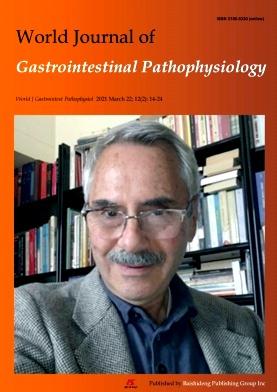Faecal calprotectin: Management in inflammatory bowel disease.
引用次数: 24
Abstract
Inflammatory bowel disease (IBD) is a chronic and relapsing disorder which leads to an inflammation of the gastrointestinal tract. A tailored therapy to achieve mucosal healing with the less adverse events has become a key issue in the management of IBD. In the past, the clinical remission was the most important factor to consider for adapting diagnostic procedures and therapeutic strategies. However, there is no a good correlation between symptoms and intestinal lesions, so currently the goals of treatment are to achieve not only the control of symptoms, but deep remission, which is related with a favourable prognosis. Thus, the determination of biological markers or biomarkers of intestinal inflammation play a crucial role. Many biomarkers have been extensively evaluated in IBD showing significant correlation with endoscopic lesions, risk of recurrence and response to treatment. One of the most important markers is faecal calprotectin (FC). Despite calprotectin limitations, this biomarker represents a reliable and noninvasive alternative to reduce the need for endoscopic procedures. FC has demonstrated its performance for regular monitoring of IBD patients, not only to the diagnosis for discriminating IBD from non-IBD diagnosis, but for assessing disease activity, relapse prediction and response to therapy. Although, FC provides better results than other biomarkers such as C-reactive protein and erythrocyte sedimentation rate, these surrogate markers of intestinal inflammation should not be used isolation but in combination with other clinical, endoscopic, radiological or/and histological parameters enabling a comprehensive assessment of IBD patients.粪钙保护素:炎症性肠病的治疗。
炎症性肠病(IBD)是一种慢性和复发性疾病,导致胃肠道炎症。定制治疗方案以减少不良事件实现粘膜愈合已成为IBD治疗的关键问题。在过去,临床缓解是适应诊断程序和治疗策略的最重要因素。然而,症状与肠道病变之间并没有很好的相关性,因此目前治疗的目标不仅是症状的控制,而且是深度缓解,这与良好的预后有关。因此,肠道炎症的生物标志物或生物标志物的测定起着至关重要的作用。许多生物标志物已经在IBD中进行了广泛的评估,显示出与内镜病变、复发风险和治疗反应的显著相关性。粪钙保护蛋白(FC)是最重要的标志物之一。尽管钙保护蛋白存在局限性,但这种生物标志物代表了一种可靠且无创的替代方法,可以减少内窥镜手术的需要。FC已经证明了它在IBD患者的定期监测中的作用,不仅可以用于区分IBD和非IBD的诊断,还可以用于评估疾病活动性、预测复发和对治疗的反应。尽管FC提供了比其他生物标志物(如c反应蛋白和红细胞沉降率)更好的结果,但这些肠道炎症的替代标志物不应单独使用,而应与其他临床、内镜、放射学或/和组织学参数结合使用,以便对IBD患者进行全面评估。
本文章由计算机程序翻译,如有差异,请以英文原文为准。
求助全文
约1分钟内获得全文
求助全文

 求助内容:
求助内容: 应助结果提醒方式:
应助结果提醒方式:


